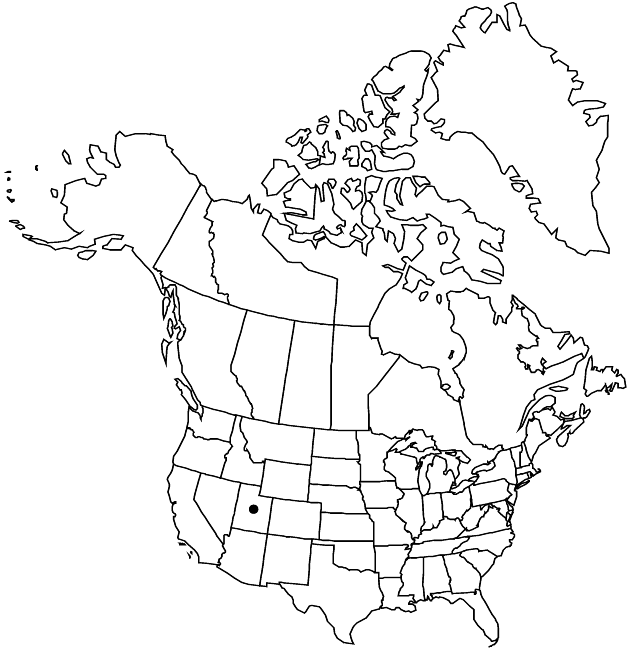Erigeron sionis
Brittonia 6: 258. 1947.
Perennials, 1.5–25 cm (becoming colonial); taprooted or fibrous-rooted, stoloniform branches persistent (1–3.5 cm), lignescent, bearing leaf tufts at tips, usually not retaining old leaf bases. Stems erect to ascending or decumbent, glabrous proximally, strigose on distal 1/2, minutely glandular near heads. Leaves basal (persistent) and cauline; basal blades oblanceolate to oblanceolate-spatulate, 50–760 × 1–11 mm, margins usually pinnately 3–5-lobed (sinuses reaching nearly to midveins), sometimes entire to dentate and mixed with lobed, faces glabrous or sparsely strigose, eglandular; cauline blades linear, gradually reduced distally, margins entire. Heads 1–4. Involucres 2–4.5 × 3.5–7 mm. Phyllaries in 3–5 series, moderately hirsute to hirtellous, minutely glandular. Ray florets 22–38(–46); corollas white, drying pink to lavender or blue, often with abaxial lilac midstripe, 4–7 mm, laminae not coiling or reflexing. Disc corollas 1.6–2.8 mm (throats slightly indurate and inflated). Cypselae 1–1.5 mm, 2-nerved, faces sparsely strigose; pappi: outer of setae, inner of 7–15(–19) (persistent) bristles.
Discussion
Varieties 2 (2 in the flora).
Selected References
None.
Key
| 1 | Basal leaves usually with linear-oblanceolate lobes, less commonly entire to dentate, blades and/or lobes 1–3(–4) mm wide; ray corollas drying white to pink or light lavender; sandstone | Erigeron sionis var. sionis |
| 1 | Basal leaves entire or dentate, rarely deeply lobed, blades (2–)3–5(–11) mm wide; ray corollas drying pink to dark blue; limestone | Erigeron sionis var. trilobatus |
